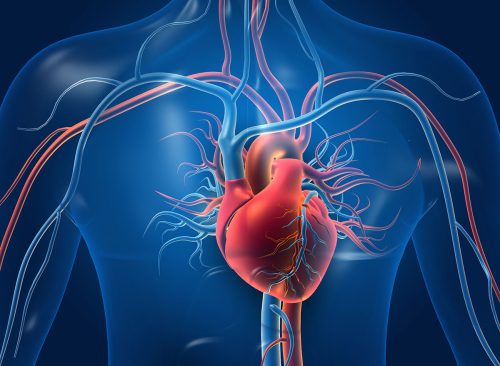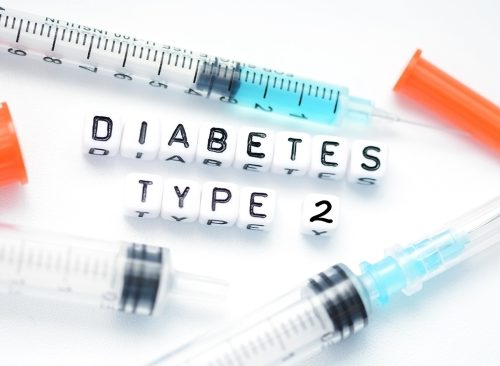25 Things Men Should Know About Turning 50
Your essential guide to embracing health, happiness, and success.

Turning 50 is a significant milestone in a man’s life, marking the beginning of a new chapter filled with unique challenges and opportunities. It’s a time when many men reflect on their accomplishments, reevaluate their priorities, and make important decisions for the future. To help you navigate this pivotal stage, here are 25 essential things every man should know about turning 50.

Regular health screenings become crucial after turning 50. Schedule screenings for conditions such as high blood pressure, high cholesterol, diabetes, and colorectal cancer. Early detection is key; routine screenings can lead to better outcomes and improved quality of life.

Maintaining an active lifestyle becomes even more important as you age. Regular physical activity, including aerobic exercises and strength training, can help prevent chronic conditions, enhance cardiovascular health, boost mood, and maintain a healthy weight. Make exercise a priority in your daily routine.

Pay close attention to your heart health as you reach 50. Incorporating heart-healthy habits such as a balanced diet, regular exercise, maintaining a healthy weight, managing stress, and avoiding smoking can significantly reduce the risk of cardiovascular diseases, including heart attacks and strokes. Consult with a healthcare professional for personalized guidance.

Taking care of your mental health is crucial at any age, but it becomes particularly important as you approach 50. Engage in stress-reducing activities like meditation, spend time with loved ones, and seek professional help if needed. Prioritize self-care to maintain emotional well-being and overall life satisfaction.

A nutritious diet is vital for overall health, energy levels, and disease prevention. As you turn 50, focus on consuming a well-balanced diet rich in fruits, vegetables, whole grains, lean proteins, and healthy fats. Limit processed foods, added sugars, and excess sodium intake to reduce the risk of chronic diseases and maintain a healthy weight.

Quality sleep is essential for physical and mental well-being. Aim for 7-8 hours of uninterrupted sleep each night to improve cognitive function, enhance mood, support immune health, and promote better overall health. Establish a consistent sleep schedule and create a conducive sleep environment to optimize sleep quality.

Annual check-ups with your healthcare provider become increasingly important after turning 50. These visits allow for monitoring vital signs, reviewing medical history, discussing any concerns, and conducting necessary health assessments. Regular check-ups facilitate early detection and prevention of potential health issues.

Prostate health is a key consideration for men over 50. Schedule regular prostate screenings and discuss any symptoms or concerns with your healthcare provider. Early detection of prostate conditions, such as prostate cancer or benign prostatic hyperplasia, can lead to better treatment outcomes.

Maintaining good bone health is essential as men age to prevent osteoporosis and reduce the risk of fractures. Ensure an adequate calcium and vitamin D intake through diet and supplementation, if necessary. To promote healthy bones, it is recommended to engage in weight-lifting exercises and limit alcohol consumption.

Changes in sexual health can occur as men reach their 50s. Address any concerns or changes with a healthcare professional. Open communication, maintaining a healthy lifestyle, managing chronic conditions, and exploring various treatment options can help address challenges and maintain a satisfying intimate life.

Regular eye exams and hearing tests become important after turning 50. As we age, our vision and hearing can undergo changes. It is important to detect any conditions such as cataracts, glaucoma, or age-related macular degeneration early on in order to prevent or delay further deterioration. To protect your eyes and ears from potential damage, it is recommended that you wear protective gear.

Effective stress management techniques become vital to maintaining overall well-being. Adopt stress-reducing practices such as exercise, meditation, deep breathing, hobbies, and spending quality time with loved ones. Effectively managing stress can be achieved by prioritizing self-care and seeking professional help if necessary.

Turning 50 is an opportune time to assess your financial goals, plan for retirement, and secure your future. Consult with a financial advisor to evaluate your savings, investments, insurance coverage, and retirement plans. Make necessary adjustments and develop a comprehensive financial strategy to ensure long-term financial security.

Nurturing meaningful relationships and social connections becomes increasingly important as you enter your 50s. It is important to build strong relationships with loved ones, participate in community events, and establish new connections. Having a network of social support can greatly improve your overall sense of well-being and provide emotional stability and satisfaction.

Your 50s can be a time for career advancement or personal growth. Assess your professional goals and consider acquiring new skills or pursuing further education if desired. Explore opportunities for personal development, volunteer work, or starting a new venture. View this stage as a chance to follow your passions and create a meaningful impact.

As men age, testosterone levels naturally decline. It is important to comprehend the potential effects of low testosterone and how it can impact overall health. Consult with a healthcare professional to discuss potential symptoms, treatment options, and the benefits and risks of testosterone replacement therapy, if necessary.

Regular colon cancer screenings, such as colonoscopies or stool tests, are recommended starting at the age of 50. These screenings can help detect colon cancer early or identify precancerous polyps for removal, reducing the risk of developing advanced-stage colon cancer. Follow the recommended screening guidelines and consult with your doctor for personalized advice.

Taking care of your skin becomes increasingly important as you age. Protect your skin from sun damage by applying sunscreen with a high SPF, wearing protective clothing, and avoiding excessive sun exposure. Regularly check your skin for any changes or suspicious moles and consult a dermatologist for a comprehensive skin examination.

The risk of developing type 2 diabetes increases with age. Maintain a healthy weight, exercise regularly, and follow a balanced diet to reduce your risk. Be mindful of your carbohydrate intake, consume fiber-rich foods, and limit added sugars. Regularly monitor your blood sugar levels and consult a healthcare professional for personalized guidance.

As we age, our cognitive function may decline. However, there are certain lifestyle choices we can make to help maintain it. Stay mentally active by engaging in puzzles, reading, or learning new skills. Adopt a brain-healthy diet rich in fruits, vegetables, whole grains, and omega-3 fatty acids. Manage chronic conditions, such as high blood pressure and diabetes, which can impact brain health.

Ensure that your immunizations are up to date as you turn 50. Stay current with recommended vaccines, including the flu, pneumococcal, and shingles. Vaccinations protect against serious infections and help maintain your overall health and well-being. Consult with your healthcare provider to determine which vaccines are appropriate for you.

Maintaining flexibility and mobility is important for independence and preventing injuries. Incorporate stretching exercises, yoga, or Pilates into your fitness routine to enhance flexibility and improve joint range of motion. Engage in activities that promote balance and coordination, such as tai chi, to reduce the risk of falls.

Maintaining a healthy gut microbiome is crucial. Consume a fiber-rich diet, prebiotics, and probiotics to support diverse and balanced gut microbiota. Avoid excessive use of antibiotics when unnecessary, as they can disrupt the gut flora. Prioritize gut health to support digestion, immunity, and mental health.

Turning 50 is a time to reassess your relationship with substances like alcohol and tobacco. Moderate your alcohol consumption and avoid excessive or binge drinking, as it can increase the risk of health issues. Quit smoking if you haven’t already, as it is one of the most significant contributors to various diseases. Seek support if needed to overcome addiction.

As you reach 50, reflect on your life’s purpose and what brings you fulfillment. Engage in activities that align with your values and passions, and find meaning in relationships, hobbies, or contributing to your community. Cultivate gratitude and embrace this stage of life as an opportunity for personal growth and fulfillment.














